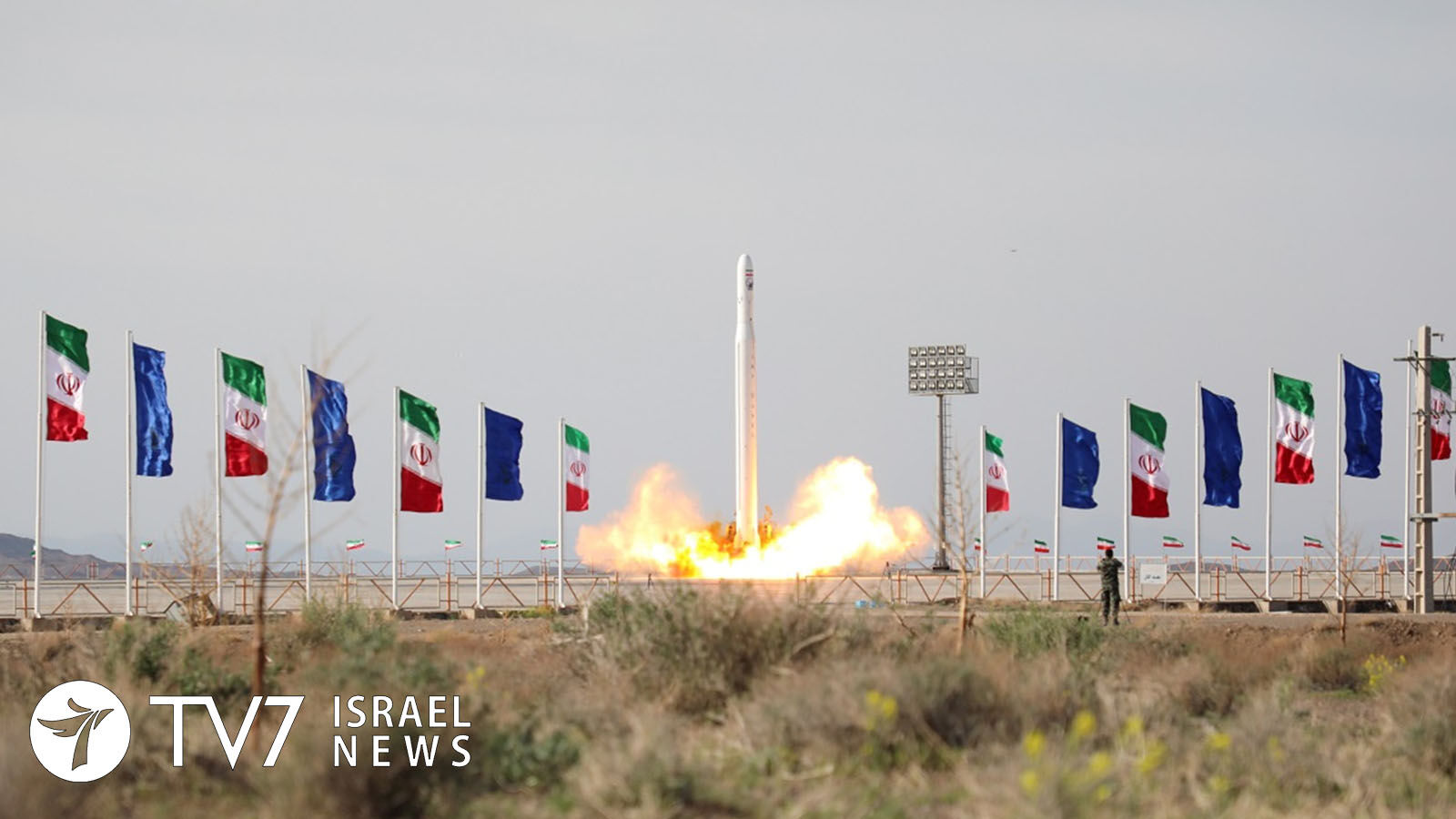Iran will send a series of military satellites into orbit over the coming years, Commander of the Islamic Revolutionary Guards Corps (IRGC) Aerospace Force Amir Ali Hajizadeh said yesterday.
By Erin Viner
The Iranian military commander made the statements as the Islamic Revolutionary Guard Corps (IRGC) successfully deployed a second military satellite, called the Noor (meaning “light” in Farsi) 2 into orbit, reported the semi-official Fars news agency.
According to the the semi-official Tasnim news agency, the Noor 2 is orbiting at an altitude of 500 kilometers (311 miles). The Islamic Republic’s first military satellite was launched into space April 2020 about 425km (265 miles) above the earth’s surface.
Boasting that Iran is the first Muslim country to launch a satellite into space, IRGC chief Major General Hossein Salami congratulated General Hajizadeh for the successful mission in spite of heavy economic measures imposed on the Islamic Republic.
“It is an honor that in the name of a Muslim nation and an Islamic system, in the atmosphere of widespread international sanctions, the children of the Iranian nation in the Guards (IRGC), with faith and will and reliance on dynamic and creative minds, were able to put satellites in orbit,” Gen. Salami said during the launching ceremony, according to the Tehran Times, emphasizing that “This important event and achievement are not just a technical act, rather overcoming the wills that wanted” to prevent Iran’s progress.
The highest-ranking IRGC commander repeated that his country’s intention to establish an active presence in space with a series of further launches that will be carried out ‘successfully in proper time.’
Underscoring that the development marks a triumph in the battle of technology over “the enemies who wanted to keep Iran undeveloped,” the paper cited Salami as saying, “This means a clear victory that will be dedicated to the dear and great Leader of the Islamic Revolution, and the dear and honorable nation of Iran.”
It is a great achievement that Iran can “put its eyes in the sky again and look at the earth from space,” he added.
The satellite was launched into space upon the three-stage Qased carrier from the Shahroud space port, said Tasnim, which are the same type of rockets operating on a combination of liquid and solid fuels that carried the first military satellite.
Iran’s show of military prowess comes as it is negotiating the revival of the 2015 Joint Comprehensive Plan of Action nuclear accord with world powers in Vienna.
The Islamic Republic unveiled a new domestically-produced missile with a 1,450 kilometer range – just one day after resuming the Vienna Talks in February. “Iran will continue advancing its ballistic missile program,” declared the country’s Armed Forces Chief of Staff Major General Mohammad Bagheri during a a ceremony at an IRGC base where the new Kheibar Shekan missile was displayed, reported Tasnim.
Iran, which routinely lays claim to possessing technological advances in its armed forces, has built one of the biggest missile arsenals in the Middle East.
The IRGC previously stated that it has built a series of underground “missile cities” along the Persian Gulf coastline.
Tehran has long rejected Western demands to halt development of ballistic missiles, which are capable of carrying nuclear payloads, in blatant defiance of of United Nations Security Council Resolution 2231 .
Arch-regional rival Sunni Muslim Saudi Arabia has repeatedly demanded that major world powers to address Gulf Arab concerns over Shi’ite- Iran’s missile arsenal.
Israel has long threatened military action against Iran if the talks in Vienna fail to curb Tehran’s nuclear work.
Indirect talks between Tehran and Washington to revive the JCPOA have made little apparent progress despite eight rounds since April 2021.
In related developments, the IRGC has vowed to avenge the deaths of two of its members in an Israeli air strike in Syria, state-run Press TV reported on Tuesday.
Syrian state media cited a military source claiming that an IDF attack on the capital Damascus killed two civilians and caused some material damage on Monday.
